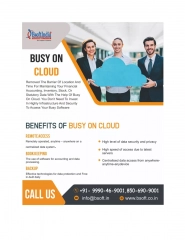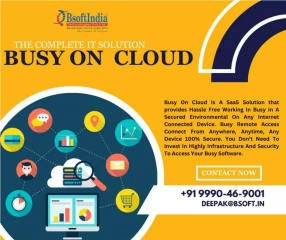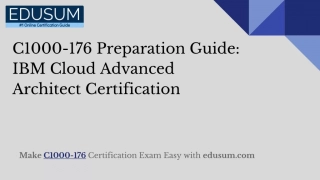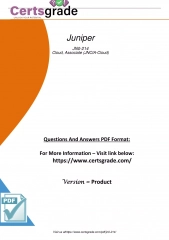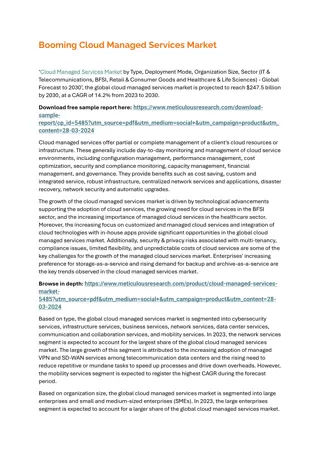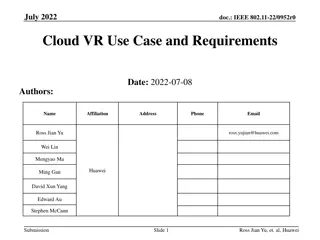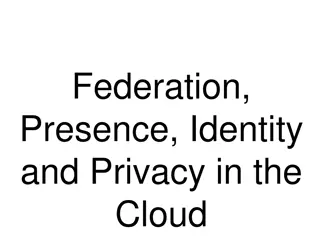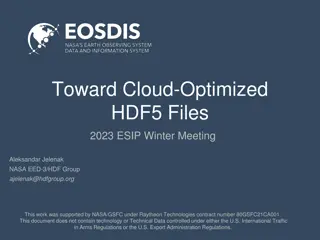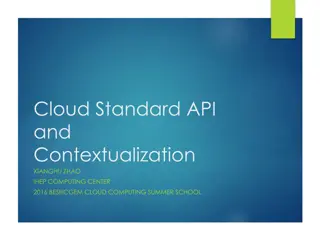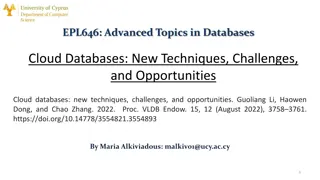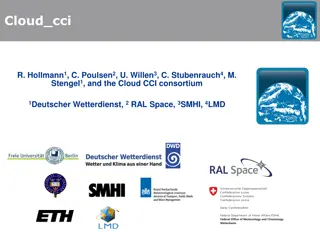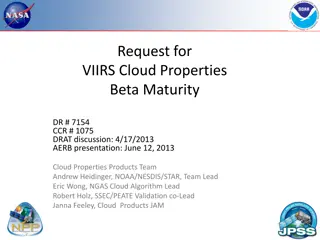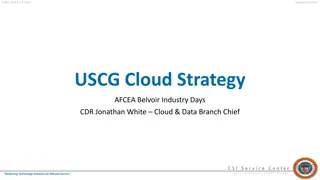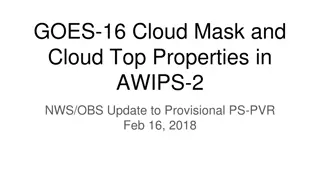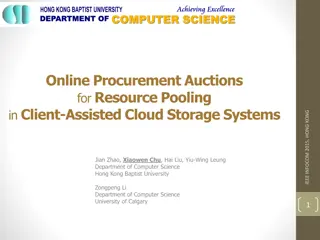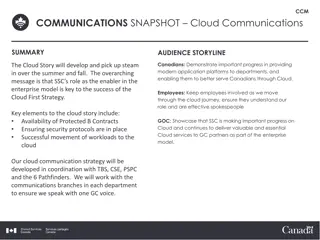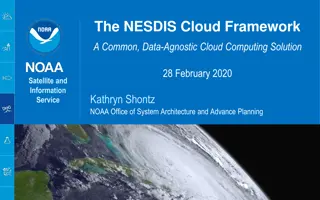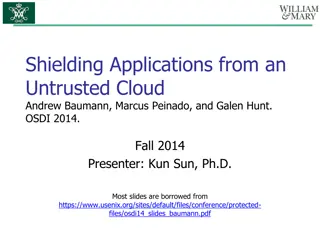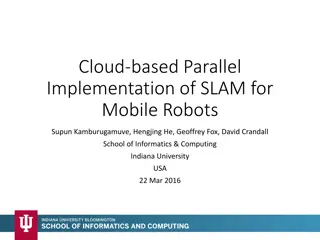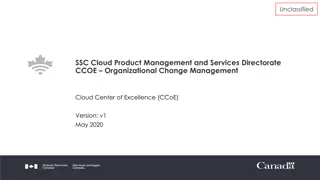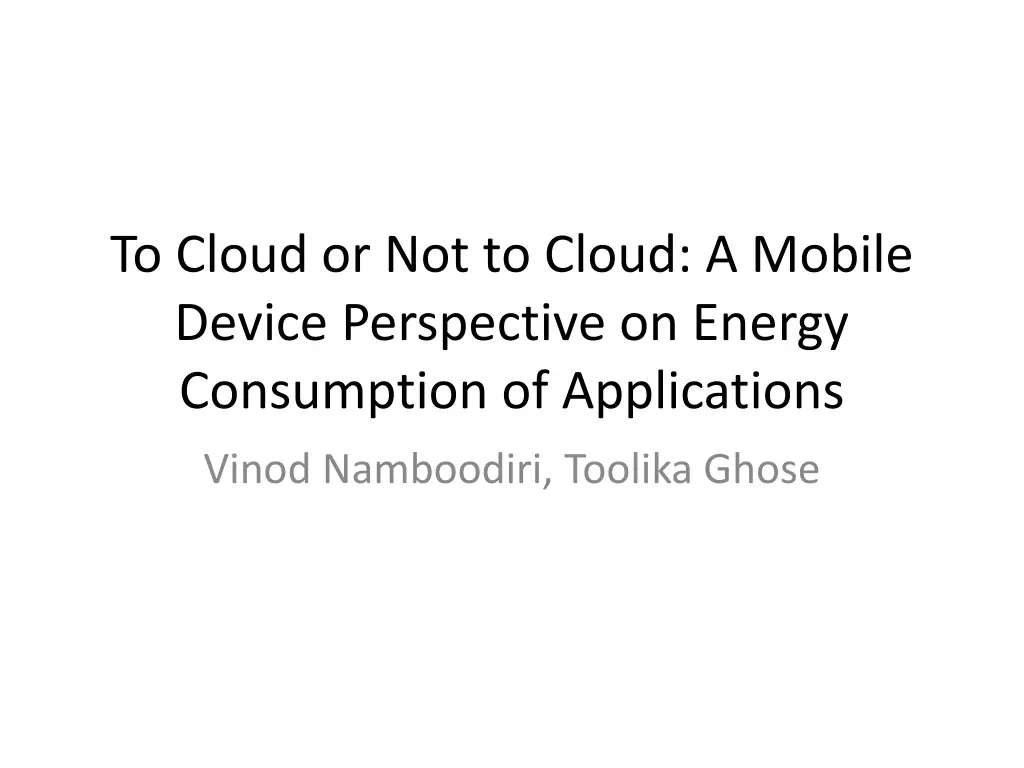
Optimizing Energy Consumption in Mobile Devices
Explore the impact of cloud-based applications on energy efficiency for various types of mobile applications. Understand the importance of decision-making for offloading heavy computations to the cloud to save energy and enhance performance. Detailed analysis on word processing, multimedia, and gaming applications in different device environments.
Download Presentation

Please find below an Image/Link to download the presentation.
The content on the website is provided AS IS for your information and personal use only. It may not be sold, licensed, or shared on other websites without obtaining consent from the author. If you encounter any issues during the download, it is possible that the publisher has removed the file from their server.
You are allowed to download the files provided on this website for personal or commercial use, subject to the condition that they are used lawfully. All files are the property of their respective owners.
The content on the website is provided AS IS for your information and personal use only. It may not be sold, licensed, or shared on other websites without obtaining consent from the author.
E N D
Presentation Transcript
To Cloud or Not to Cloud: A Mobile Device Perspective on Energy Consumption of Applications Vinod Namboodiri, Toolika Ghose
Outline Introduction Empirical measurement Analytical characterization Performance considerations Algorithm and conclusion
Decision is important for offloading Mobile give the heavy computation to cloud may save energy or improve performance so deciding whether/ when to use cloud can achieve the goal is important What types of applications is more energy- efficient by using cloud-based What is the impact of device form-factor
Outline Introduction Empirical measurement Analytical characterization Performance considerations Algorithm and conclusion
Word processing Device: Lenovo SL400/ HTC desire Android Local: QuickOffice Cloud: Google Docs Win 7 Local: Microsoft Office, Sun Open office Cloud: Google Docs, Microsoft Office Live Ubuntu Local: Sun MicroSystem Open Office Cloud: Google Docs The same input text was entered manually at a constant typing rate
Multimedia Device: Lenovo SL400/ HTC desire Android: Local: built-in player Cloud: Youtube Win 7 Local: Windows media player Cloud: online radio (for audio), Youtube (for video) Ubuntu Local: Movie Player Cloud: online radio (for audio), Youtube (for video) The radio station was chose carefully to had the same audio characteristics as the local MP3. Firefox, IE and Chrome was the browser used to play youtube. The video file type is FLV and MPEG- 2.
Game Device: Lenovo SL400/ HTC desire Cricket Local play with computer and online played with opponents consumed almost an identical amount of energy Chess Cloud-base version is most beneficial for laptop, but is less beneficial for smartphone
Outline Introduction Empirical measurement Analytical characterization Performance considerations Algorithm and conclusion
Model and condition for energy- efficient cloud based execution
Determining an energy-efficient range for cloud computing
Outline Introduction Empirical measurement Analytical characterization Performance considerations Algorithm and conclusion
Outline Introduction Empirical measurement Analytical characterization Performance considerations Algorithm and conclusion
Conclusion The equation can be adjusted to fit the offloading system The feature score is too abstractive and can discard it

